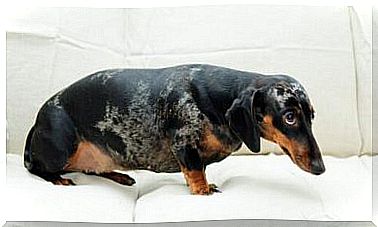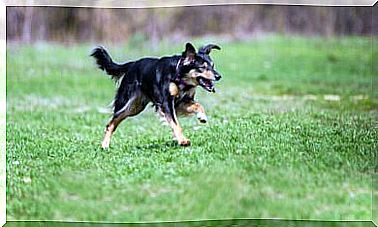Intestinal Parasites In Dogs

Of all the evils that our little four-legged friends can suffer from, one of the most delicate is constituted by intestinal parasites. They are worms that can cause such serious damage that, on several occasions, even lead to the death of the animal.
Although it is much more dangerous when it happens to puppies, even adults can suffer serious consequences. If you don’t know much about the subject, below we explain everything you need to know.
Types of intestinal parasites
Among all the parasites that infect dogs, there are 7 main types:
Hookworms
These are the most common, assimilated by the dog through the ingestion of different types of larvae or eggs. These remain in fact in the weed, once expelled from an already infected animal.
The hookworms
they are microscopic and survive in the small intestine, often causing episodes of diarrhea and severe canine anemia, especially in puppies just a few months old.
Toxocara canis

Author: Christine und David Schmitt
Genus of parasites that are used to infect almost exclusively the little dogs during the lactation and the puppies of a few months. This is due to the fact that the larvae are activated during the gestation period.
The symptoms of their presence are the following:
- Debilitation
- Delay in development
- Cough
- Abdominal pain
- Pneumonia
- Total blockage of the digestive system
- Diarrhea
It is important to note that these parasites are like small whitish pink “noodles” and up to 15 centimeters long.
Toxascaris leonina
Almost identical in appearance to the previous ones, the difference is found in the color, completely white, and in the rounded structure. However, they are just as dangerous and lethal.
Here are the symptoms presented by the specimens that are infected:
- Diarrhea
- He retched
- Cough
- Debilitation
- Convulsions
As you can see, effects very similar to those caused by Toxocara canis.
Trichuris vulpis
Known by many veterinarians as whipworms, these parasites reside in the dog’s cecum and can measure up to 7cm in length.
The most peculiar feature of Trichuris vulpis is the ability not to induce any type of symptomatology in the animal. However, it can sometimes cause anal irritation, thus causing the dog to crawl the affected area on the ground in order to soothe the itch.
Uncinaria stenocephala
Another species of hookworms, with the difference that this parasite has a round shape, reaches two centimeters in length and proliferates in the small intestine.
Once it attacks the dog’s skin, it can cause acute dermatitis, particularly on the paws. Likewise, it can generate interdigital cysts.
Commonly to the other cases mentioned, this parasite can also cause anemia and attacks of diarrhea.
Dipylidium
caninum
Known by all as the solitaire worm, it is a parasite characterized by a flat structure and a length that can reach 305 centimeters.
The most common symptoms of Dipylidium caninum are:
- Diarrhea
- Debilitation
- Growth delay in puppies by a few months
This parasite resides in the small intestine of the dog and it has been possible to see it in its entirety only on rare occasions. In general, the dog usually excretes it in pieces through the feces, where it appears dry and resembles small grains of rice.
Echinococcus granulosus

Unlike the tapeworm, it is one of the smallest intestinal parasites that exist, measuring up to 9 millimeters.
It is characterized by a flat appearance and a predilection for the small intestine of the infected animal. In general, Echinococcus granulosus causes diarrhea, hydatid cyst and loss of physical condition.
It is important to highlight how this parasite is very common in dogs. Once detected by the vet, the only solution is complete eradication.
To this end, periodic consumption of the anthelmintics prescribed by the specialist is strongly recommended . In the same way, it will be necessary to avoid that the animal consumes the entrails of animals, mainly those of sheep.
As you may have noticed, the types of intestinal parasites that can attack your four-legged friend are many and different. If you notice any of the symptoms described above, then see your vet right away.









